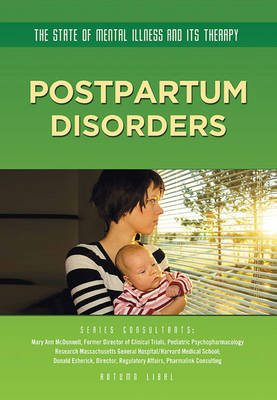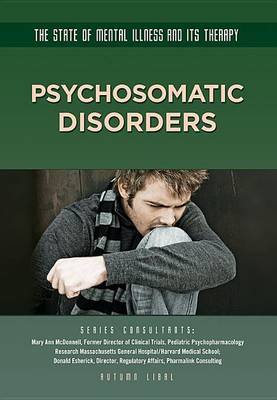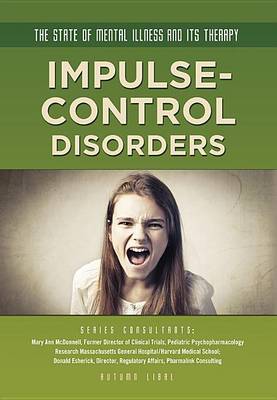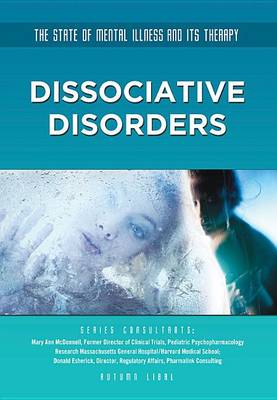The State of Mental Illness And Its Treatment
4 total works
Everyone told Sandra she would be happy. People described in rapt detail the overwhelming feeling of love and purpose that would envelop her at her daughter's birth. Nothing prepared Sandra for the heavy fog of dread and loss that descended upon her in the delivery room on the day she gave birth. When the nurse handed her the crying, bruised, purple-pink bundle, Sandra had to fight the urge to hand the bundle back and run. She wanted to turn the clock back nine months before any of this had happened. When she did spend time with her daughter, instead of singing soothing lullabies, Sandra found herself whispering, "I hate you. I wish you had never been born." Pregnancy, childbirth, and early motherhood is supposed to be a time filled with the joy and wonder of bringing a new life into the world. Unfortunately, some women find that the struggles of early motherhood are accompanied by multiple sorrows that clash with this picturesque ideal. As difficult as it may be for a person who has not experienced it to understand, Sandra's feelings are quite common among new mothers struggling with the physical, emotional, and social upheaval that follows giving birth. In this transitional period, some women become more vulnerable to depression and may experience psychiatric disorders such as postpartum depression and postpartum psychosis. Postpartum Disorders will tell you more about these disorders, the experiences of the women who have faced them, and the treatments that can help.
Our bodies are constantly reacting to mental stimulation. When reliving the winning goal you made in the hockey game, your face might flush, heart race, and muscles tense. A child who is being bullied at school might feel sick every morning before leaving home. A passionate kiss in the movies might make your own lips tingle. These are examples of psychosomatic reactions: physical reactions to mental or emotional symptoms. Sometimes a person's psychosomatic reaction to mental stress may be so severe that it causes a debilitating disorder. For example, Kevin sometimes still has trouble believing his leg is truly gone. He has strange sensations that he cannot account for. Some are unpleasant, like the constant itching where he no longer has a place to itch. Others are nice surprises, like when he can feel his cat brushing against where his leg should be. The worst, however, is the pain. For the all other inexplicable feelings that come and go, the pain never leaves Kevin's body or mind. Sometimes in the dark quiet of his bedroom, he has nightmares in which he relives stepping on the land mine. Only in his nightmares, everything happens in slow motion. He can see his leg tearing away from his body. He reaches forward, grabbing for his leg, and the excruciating pain wakes him up. He lies, panting in the darkness, trying to will the pain away, asking himself, "How can something that doesn't even exist hurt so badly?" How can doctors treat the pain and illness in the body that are caused by the mind? In this book, you will learn more about Kevin's story, what psychosomatic disorders are, how these "phantom" disorders can be treated.
Have you ever known that you shouldn't do something, but just couldn't stop yourself? Of course you have! Perhaps you couldn't resist having one more piece of birthday cake. Maybe your brother or sister made you so mad that you couldn't help yelling. Everyone experiences uncontrollable impulses like these sometimes. But what if these impulses happened to you all the time? How would you interact with your family, do your work at school, or make friends if you couldn't control your impulses? Jeremiah, for instance, loved fire. He loved everything about it-the way it looked, the way it smelled, how its heat enveloped everything. Even though he knew it was wrong, Jeremiah lit fires and watched them incinerate, eat, and destroy everything in their paths. Jeremiah also liked the smoke detectors in his house. He loved taking them apart. Sometimes, after school, Jeremiah would sit in his room, dismantle the smoke detector piece by piece, and then put it back together. Once the smoke detector was reassembled, Jeremiah would light a match beneath it and time how many seconds it took before the detector let out its high-pitched squeal. People like Jeremiah cannot control all the impulses they feel. Some people may get uncontrollably angry, steal, light fires, gamble, pull their own hair, or perform other impulsive actions that are harmful to themselves, their families, and their friends. When a person has repetitive impulses like these, he may be suffering from a psychiatric condition known as an impulse-control disorder. The stories and information in this book will tell you more about impulse-control disorders, how they affect people's lives, and how they can be treated.



